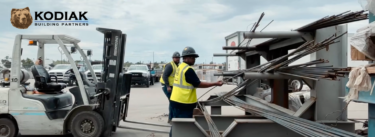In Lean We Trust; Especially in a Crisis
When phone calls and cancellations started coming in, the COVID-19 crisis became more than a news report about somewhere else. We knew we had our own situation to deal with.
Undoubtedly, you’re responding to this unprecedented situation too. I’d like to share with you how the LEI team is tackling our biggest challenge – the cancellation and subsequent transformation of the Lean Summit. At a time of social distancing, it’s the only gemba from which I can report. I hope it will be a useful reminder of why we practice lean thinking.
A Problem Interrupts the Work
The Lean Enterprise Institute, a 501(c)(3) nonprofit organization, is dedicated to research and the teaching of lean principles and practices. For more than 20 years, LEI has advanced (a) our collective understanding and (b) its use in making work – and our lives – better. The annual Lean Summit is our largest activity. More than 500 members of the Lean Community gather together in one place for plenaries, breakout sessions, workshops, and more.
Everything LEI does ties into the Summit. Organizations undergoing lean transformations present, practitioners with situational knowhow run breakout sessions, and thought leaders with deep insights conduct workshops and sell books. Most of all, lean practitioners interact by sharing stories, passing on learnings, exploring questions, and relating to one another’s challenges. All of it adds up to a rejuvenating experience where people get inspiration and encouragement to keep trying. The Lean March continues.
So, when the Lean Summit was questioned, it was like twisting an ankle during a routine yet intense morning run. “Just walk it off!” you think to yourself. “Keep going!” But then the swelling starts. We had to respond.
A3 Thinking
We did what lean thinkers do. Following those calls and cancellations, the team hunkered down, spending the next few days working through an A3. We gathered the facts. Did the research. And began planning.
We identified three possible countermeasures: /p>
- Reschedule the Lean Summit
- Hold it with fewer attendees and enable remote participation
- Transform it into a virtual experience that takes place 100% online
At first, all three seemed viable. However, as we analyzed the merits and demerits of each, we learned more about the situation surrounding the coronavirus. The safety risk of gathering people together came to dominate all other considerations. Increasingly, we knew we had to cancel the in-person event. It turned out we had no choice. (One “countermeasure” we didn’t consider was to cancel outright. That wasn’t consistent with our mission or lean thinking in general.)
What excited us the most was how we might transform the Summit, still bringing people together for learning, albeit virtually. To figure out what a virtual experience should be, we talked to attendees and speakers alike, past and present.
Responding to the Voice of the Customer
We learned that people who attend the Lean Summit value four things:
- Getting away from the office and ideally, visiting somewhere nice
- Hearing stories of lean transformation for inspiration and encouragement
- Obtaining new knowledge that can improve their own organizations and work
- Networking with like-minded individuals who have similar challenges
The effort humbled me. I have more clarity than ever on what attendees value. For that I am grateful.
We’ve discovered that the overall value proposition can absolutely be met online! The more we learn about the capabilities of online platforms like Zoom and Slack, the more we believe that the Virtual Lean Summit Experience (VLX) can be as good if not better than the in-person Summit. To learn why we believe that, you can visit lean.org. You can also watch a webinar with LEI Team Leader Matt Savas and I describing the VLX at a high level. And soon, you’ll be able to listen to a WLEI podcast with LEI Instructional Designer Masia Goodman who, having studied online education for several years, will talk in depth about the exciting possibilities for learning with the VLX. Of course, an online experience cannot transport you to sunny California. I’m sorry about that too.
Reflections
Thankfully, lean thinking gives us a powerful way to address problems of any size. It focuses us on what matters: purpose (the value to create), process (even when, or I should say especially when, it must change), and people (be thankful for your team!). It guides us through figuring things out, and continuously improving, with structured cycles of Plan-Do-Check-Act.
Just like the team at LEI, you’re facing this crisis too. Every one of you. Worldwide. The myriad problems caused by the coronavirus are testing our capability. All of us are doing our best to meet the challenge. At LEI, we intend to keep sharing our story with you. Not because it’ll be perfect. Not because our thinking will be complete, or all our judgments will be good. They won’t be, not always anyway. But because we’ll use lean thinking and learn a helluva lot along the way.
Josh
Josh Howell
President, Lean Enterprise Institute
Boston, Massachusetts
P.S. Please be in touch (virtually, of course) and share your stories too. We’re listening and will do what we can to help. And please, please, please, be safe.






